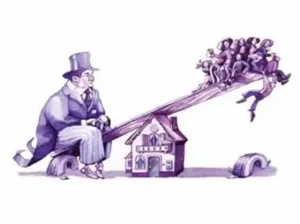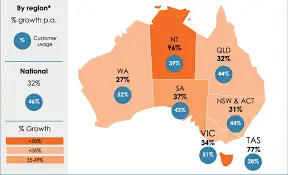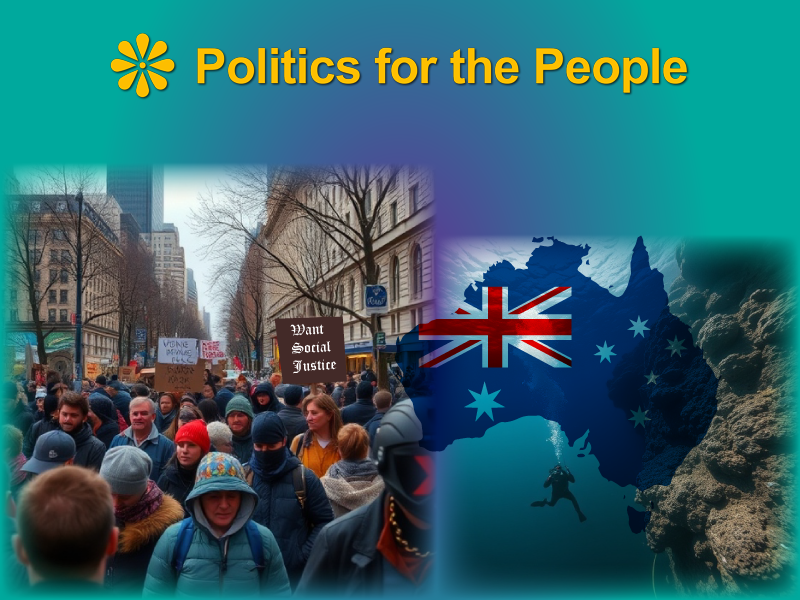Description
Explore the impact of neoliberal economics and how it has reshaped societies globally, affecting employment, inequality, and public services. Learn about its broad implications and consider alternative approaches.
Introduction: Examining Neoliberal Economics

Neoliberal economics has become a guiding principle in many countries, advocating for reduced government intervention, deregulation of markets, and an emphasis on privatization. While proponents argue this model drives economic efficiency and growth, critics highlight significant drawbacks, including increased inequality and degraded public services. This article offers a comprehensive exploration of how neoliberal policies have reshaped economic landscapes and social structures around the world.
Surplus-Obsessed Government
The Drawbacks of Austerity Measures
Governments adhering to neoliberal ideologies often prioritize budget surpluses, which can lead to austerity measures—severe cuts in public spending. These cuts typically affect essential services such as healthcare, education, and public infrastructure, potentially stunting social progress and exacerbating income inequality. Critics argue that while supporting a balanced budget is important, excessive focus on fiscal surplus can hinder economic growth and social welfare.
Long-Term Social Impact
The long-term social impact of austerity measures, a hallmark of neoliberal economic policies, extends beyond the immediate reduction in public spending. These measures can lead to systemic changes that adversely affect the fabric of society for generations. By reducing investments in critical areas such as health, education, and social safety nets, austerity measures not only compromise the quality of life but also inhibit social mobility.
- Healthcare Access and Outcomes: Cuts in healthcare spending can result in reduced accessibility to medical services, longer wait times, and deteriorating quality of care. Over time, this can lead to a less healthy population, with chronic conditions becoming more prevalent and more challenging to manage due to early-stage interventions being less available.
- Educational Opportunities: Reduced funding for education can widen the educational attainment gap between different socio-economic groups. Lower investment leads to poorer school facilities, less qualified staff, and fewer educational programs, particularly impacting students from lower-income families who may not have access to alternative educational resources.
- Increased Social Stratification: With diminished public services, wealthier individuals often turn to private options, leading to a stratified society where quality healthcare, education, and other services become luxuries only the affluent can afford. This stratification can entrench inequalities, making it increasingly difficult for individuals from lower socio-economic backgrounds to ascend the social ladder.
- Community Cohesion and Stability: Austerity can exacerbate community tensions and lead to social unrest. As public services degrade and inequalities deepen, dissatisfaction and frustration can increase, potentially leading to more frequent and intense social conflicts.
Elevated Unemployment and Underemployment
Labor Market Flexibility and Its Consequences
Neoliberalism favours labor market flexibility, which includes practices like easing restrictions on hiring and firing, weakening unions, and promoting part-time and temporary work arrangements. While these policies are intended to create a more dynamic labor market, they often lead to increased job insecurity and make it difficult for workers to find stable, well-paying jobs.
Impact on Worker Well-Being
The impact of neoliberal policies on worker well-being is profound and multifaceted. As labor markets prioritize flexibility over security, workers often find themselves in precarious positions that affect not only their economic stability but also their mental and physical health.
- Job Security and Mental Health: The uncertainty associated with precarious work—such as not knowing if one will have enough work in the following weeks or months—can lead to significant stress, anxiety, and depression among workers. The constant worry about job stability and income can take a mental toll, affecting workers’ overall mental health and quality of life.
- Physical Health Risks: Precarious jobs, often characterized by inconsistent hours, lack of benefits, and minimal job protection, can also pose direct risks to physical health. Workers may avoid seeking medical help for work-related injuries or illnesses due to fear of job loss or lack of health insurance, leading to worse health outcomes over time.
- Work-Life Balance: With the rise of gig and temporary jobs, many workers struggle to maintain a healthy work-life balance. Unpredictable work schedules can disrupt family life, reduce time for personal care, and increase stress levels, which are detrimental to long-term well-being.
- Erosion of Workplace Community and Support: In a flexible labor market, the traditional bonds that form in more stable work environments can be weaker, leading to a sense of isolation and lack of community at work. This erosion of support networks can make it harder for workers to collaborate effectively and advocate for better working conditions, further undermining their well-being.
Precarious Work and Stagnant Wages
The Rise of the Gig Economy

The gig economy, characterized by short-term contracts or freelance work as opposed to permanent jobs, has proliferated under neoliberal policies. This sector often lacks the protections and benefits associated with traditional employment, such as health insurance, retirement plans, and stable income, leading to significant financial instability for those reliant on gig jobs.
Challenges in Wage Growth
Wage stagnation is another critical issue within neoliberal economies. Despite increases in productivity and profits, wages for the average worker have remained stagnant. This disconnect between productivity and wage growth contributes to growing income inequality and reduces overall economic welfare, as workers have less disposable income to spend and invest.
Rising Income and Wealth Inequality
Wealth Concentration at the Top
Neoliberal policies have helped a greater concentration of wealth among the wealthiest individuals and corporations, often at the expense of the broader population. Tax cuts for the wealthy, deregulation of industries, and privatization of public assets have all played roles in worsening this concentration, which undermines the economic foundation of society by limiting the general population’s purchasing power.
Economic and Social Ramifications
The widening gap between the rich and the poor not only leads to economic instability but also to social unrest. Elevated levels of inequality can result in increased crime rates, reduced social cohesion, and decreased trust in institutions, which are detrimental to societal well-being and democratic processes.
Education and Training Systems Degraded
Reduction in Public Education Funding
Under neoliberal regimes, public investment in education is often significantly reduced. Schools and universities face budget cuts, which can lead to larger class sizes, reduced course offerings, and higher tuition fees. This diminishes the quality of education and limits access, particularly for students from lower-income families.
Narrowing of Educational Objectives
There is also a shift towards education systems that prioritize outcomes aligned with labor market needs, such as technical skills, at the expense of broader educational goals like critical thinking and civic engagement. This can result in an education system that does not fully prepare students to be well-rounded, informed citizens.
Social and Environmental Failure
Neglect of Social and Environmental Considerations
Neoliberal policies often prioritize short-term economic gains over long-term environmental sustainability and social welfare. This can lead to policies that support environmentally destructive practices if they are considered economically beneficial. Additionally, reduced spending on social services can leave vulnerable populations without necessary support, worsening issues like poverty and social exclusion.
Consequences for Community and Nature
Environmental degradation and social inequalities undermine the long-term sustainability of economies and societies. Deteriorating natural environments, due to policies that favour exploitation over conservation, can lead to irreversible damage, affecting biodiversity, climate, and the health of populations.
Regions and Communities Left Behind
Economic Centralization
Neoliberal policies often favour economic centralization, which can lead to a disproportionate concentration of investment and development in urban areas, neglecting rural and peripheral regions. This contributes to a geographical imbalance in economic opportunities and can worsen regional disparities.
Impact on Local Economies
As investment focuses on certain urban centres, other regions can suffer from lack of access to quality jobs, education, and healthcare. This not only hinders their development but also contributes to a brain drain, where the most talented individuals leave in search of better opportunities elsewhere.
Conclusion: Rethinking Economic Policies
The widespread implementation of neoliberal policies has led to numerous challenges, including job insecurity, stagnant wages, rising inequality, and environmental degradation. It’s crucial for societies to reevaluate these policies and consider more sustainable and fair economic models that prioritize long-term welfare over short-term gains.
Question for Readers
How have neoliberal economic policies affected your community, and what changes would you like to see to address these effects?
Call to Action
Reflect on the implications of neoliberal economics in your life and community. Engage in discussions, advocate for policy changes, and support initiatives that aim to create a fairer and more sustainable economic system. Your voice and actions can contribute to shaping a future that prioritizes social welfare, environmental sustainability, and fair economic growth.
Share This Article
Please share this comprehensive overview of neoliberal economics with your contacts and on social media to help foster a well-informed public discourse.
References:
How neoliberalism became an insult in Australian politics: https://www.sydney.edu.au/news-opinion/news/2022/08/11/how-neoliberalism-became-an-insult-in-australian-politics.html
The phrase ‘dole bludger’ emerged in the 1970s, and it’s still serving its political purpose: https://www.abc.net.au/news/2021-05-30/dole-bludger-emerged-in-the-1970s-to-serve-a-political-purpose/100174356
The end of neoliberalism: https://era.org.au/the-end-of-neoliberalism/
Inequality on Steroids: https://australiainstitute.org.au/wp-content/uploads/2023/04/Inequality-on-Steroids-Who-Benefits-From-Economic-Growth-in-Australia-WEB511-copy.pdf
Modern Monetary Theory (MMT): Definition, History, and Principles: https://www.investopedia.com/modern-monetary-theory-mmt-4588060
Dollar Liquidity, Financial Vulnerability and Monetary Sovereignty: https://onlinelibrary.wiley.com/doi/full/10.1111/dech.12799
Modern money theory on fiscal and monetary policies: empirics, theory, and praxis: https://www.elgaronline.com/view/journals/ejeep/20/1/article-p11.xml

